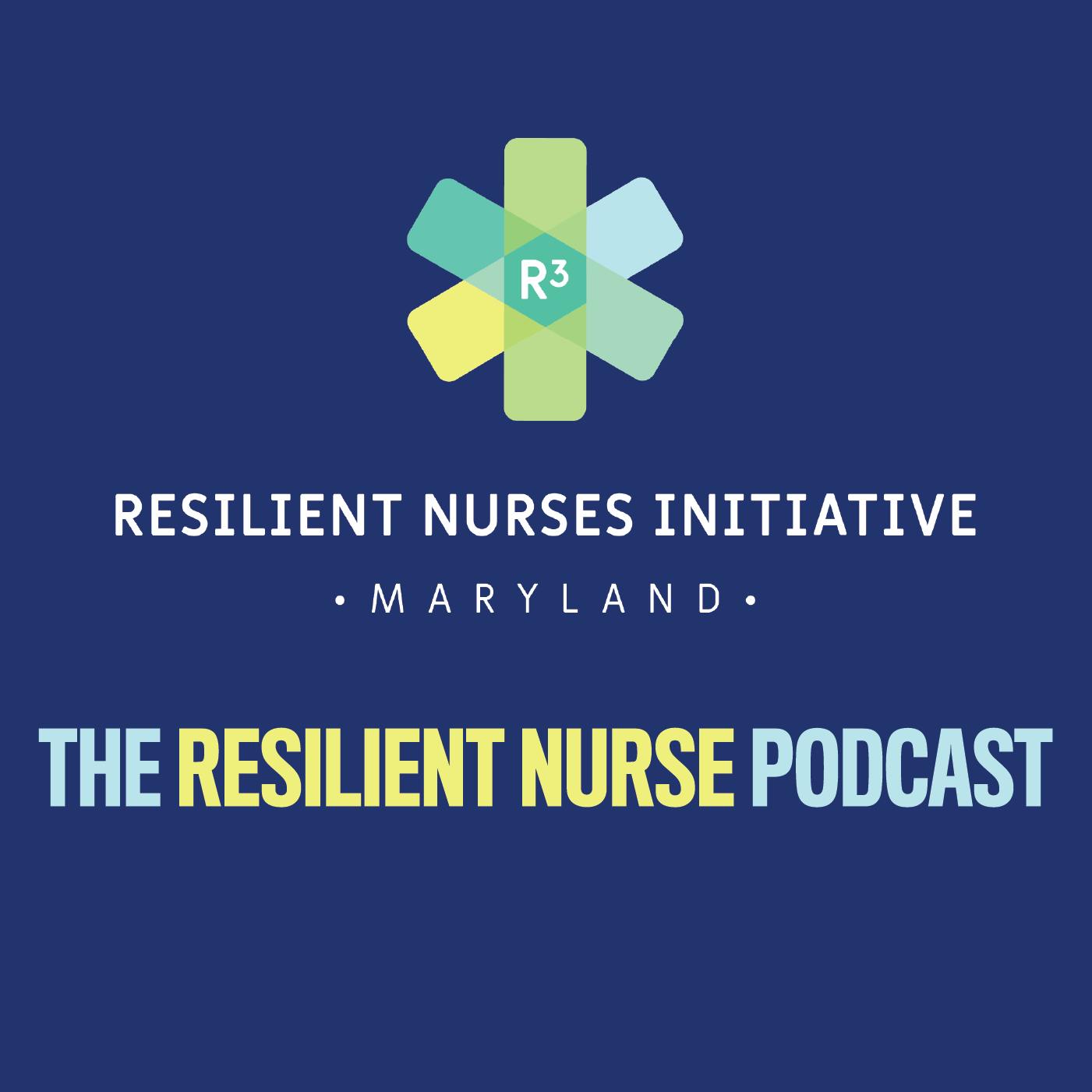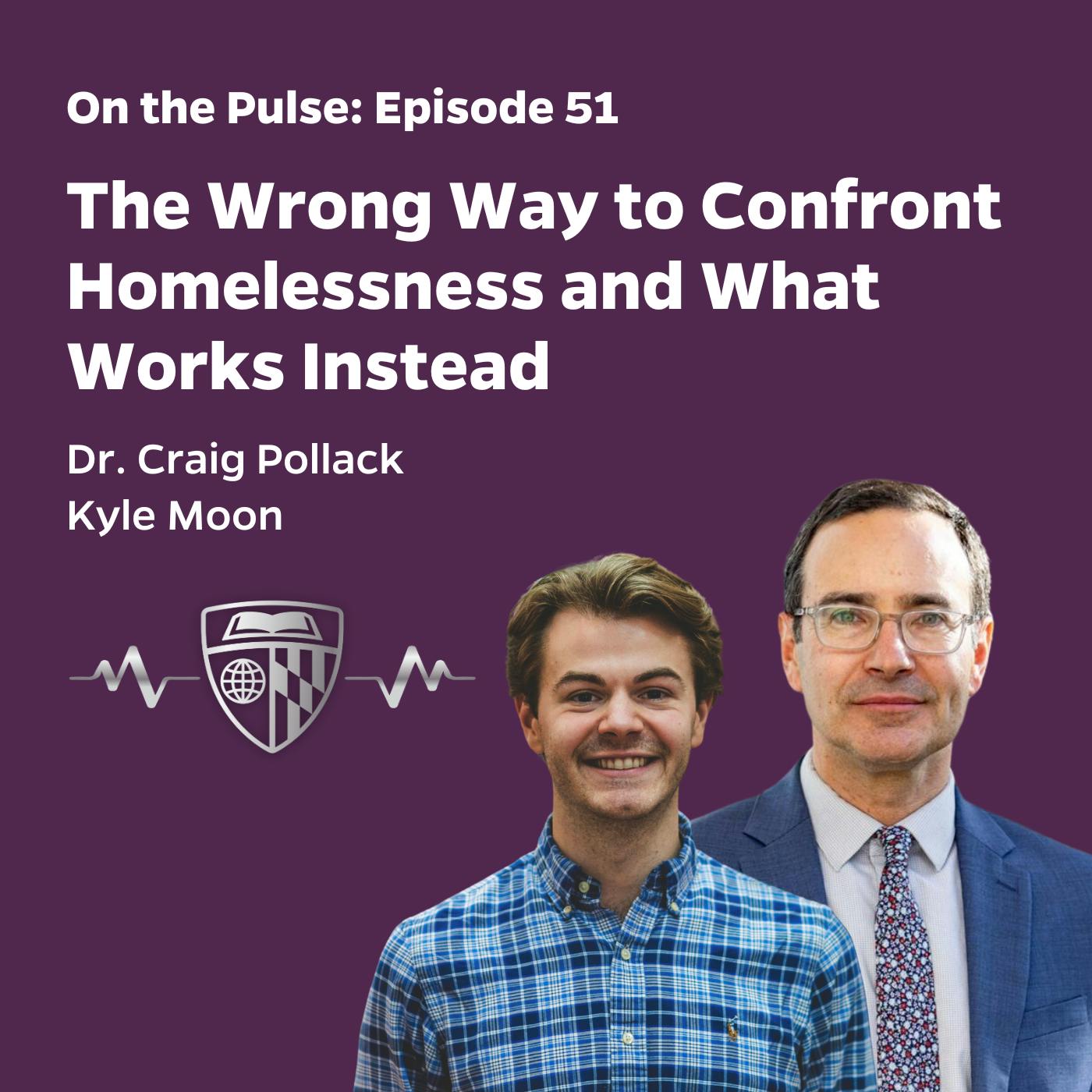Discover On the Pulse Podcast
On the Pulse Podcast

On the Pulse Podcast
Author: Johns Hopkins Nursing Magazine
Subscribed: 5Played: 15Subscribe
Share
© 2020-2023 Johns Hopkins Nursing Magazine
Description
On this podcast, we will take a deep dive into the experiences of frontline providers and researchers. We’ll explore their insights and invaluable stories of how health care works in today’s world – both locally and globally. Each month, we will host guests who are experts in topics from climate change to pregnancy to palliative care. And we’ll hear some of their personal stories too – why they got into health care and what drives them each day. Health care is complicated, and it’s always changing. But stories of resilience, helping people across the world, and developing ground breaking research is what nursing is all about. We can’t wait for you to join us!
84 Episodes
Reverse
School of Nursing Associate Professor, Dr. Michelle Patch, and alumna, Dr. Alainna Crotty, have both served in the military as nurses. In this episode, they share what drew them to serve, the unique challenges of their roles, and what their experience has taught them.
This year marks 25 years since the creation of the Johns Hopkins Urban Health Institute (UHI). To help recognize and celebrate this milestone, Dr. Lisa Cooper, MD, MPH, MACP, and UHI Director, joins the podcast to reflect on UHI’s legacy and what’s ahead as UHI continues its mission of advancing health equity locally and nationally.
Links to UHI Resources:
Baltimore Health Equity Impact Grants (BHEIG)
Bunting Neighborhood Leadership Program (BNLP)
Speakers Bureau
Henrietta Lacks Memorial Award (HLMA)
Social Determinants of Health Symposium (SDOH)
Nobody Asked Me Campaign
Dr. Sharon Pappas, Chief Nurse Executive at Emory Healthcare, returns to the podcast to discuss how creating a healthy practice environment fosters nurse retention.
Criminalizing homelessness doesn’t solve it. In this episode, we talk with experts about why forced treatment and punishment fail—and what real solutions, like Housing First, actually look like.
In this episode, Dr. Cynda Rushton sits down with Dr. Christine Pabico,
Sr. Director of the Pathway to Excellence and Well-being Excellence Programs at the American Nurses Credentialing Center (ANCC), to talk about the incredible impact these programs have had on healthcare organizations.
These programs provide evidence-based standards to evaluate and enhance well-being efforts. This credential builds upon ANCC's legacy of recognizing healthcare organizations that prioritize their workforce's well-being and foster a culture of safety and health.
Learn more about the program: https://www.nursingworld.org/organizational-programs/well-being-excellence/
During Disability Pride Month, Dr. Bonnie Swenor, founder and director of the Johns Hopkins Disability Health Research Center (DHRC) and inaugural Endowed Professor of Disability Health and Justice at the Johns Hopkins School of Nursing, shares her personal experience living with a disability and how she and her team utilize data to inform their research.
How can nurse leaders go beyond inclusion and build an environment where everyone feels like they belong? In this episode, Dr. Cynda Rushton is joined by Dr. Deborah Stamps, a former CNO herself, to talk about how belonging boosts retention and resilience. Dr. Stamps also shares insights on a new toolkit developed by AARP, which offers resources and strategies for nurse recruitment and retention, along with ways to foster a sense of belonging among nurse teams and address gaps in current approaches to diversity and inclusion.
Check out the toolkit here: campaignforaction.org/resource/recruitment-and-retention-toolkit/
Evan LaChance and Emma McWaid, students in the MSN (Entry Into Nursing) program, are the president and vice president of the LGBTQ+ Health Curriculum Initiative student group at the School of Nursing. In this episode, they share the origins of the group, the importance of LGBTQ+ education in healthcare, and what they hope to achieve as leaders of this initiative.
In this episode, Dr. Rushton talks with Dr. Rose O. Sherman about how nurses in the workforce can frame professionalism and professional identity through the lens of professional branding.
https://emergingrnleader.com/framing-professionalism-and-professional-identity-through-the-lens-of-professional-branding/
Dr. Laura Samuel, Associate Professor at the Johns Hopkins School of Nursing, and PhD student, Fernando Mena-Carrasco discuss the implications and impacts surrounding budget cuts to programs like SNAP, Medicaid, and more.
Editor's Note: Mena-Carrasco states that Medicaid covers 60-70% of births by Latina Women. This figure is actually for Black mothers. For Latina mothers, it is 59%.
This episode features a conversation between Dr. Cynda Rushton, Lauren Geiling, BS, ADN, RN, and Rachel Robinson, BSN, RN, CCM, DNP-S, about the recently released film project, "Harnessing the Promise of Nursing." Both Lauren and Rachel participated in the film and shared their takeaways from the experience and what they hope nurses and health care workers take away from it.
"Harnessing the Promise of Nursing" is a short film that promotes a new narrative about nursing, builds community and support networks, and invites nurses to rekindle a sense of joy and fulfillment that is an integral part of their irreplaceable work, created by Dr. Cynda Rushton
and the R3: Resilient Nurses Initiative team, in conjunction with the iDeas Lab at the Johns Hopkins Berman Institute of Bioethics.
Watch the full film here: https://nursing.jhu.edu/faculty-research/research/centers/r3/harnessing-the-promise-of-nursing-film/
Dr. Jason Farley and his team of researchers have spent years working to find solutions to treating tuberculosis (TB) among South African populations. In this episode, Dr. Farley explains how he and his team have developed nurse-led models of care to make treatment for TB accessible and affordable throughout South Africa.
In this conversation, Dr. Cynda Rushton and Dr. Allison Pugh, Professor of Sociology at Johns Hopkins University, investigate key insights from Dr. Pugh's new book, "The Last Human Job." The discussion centers on how new technology is integrated into the nursing field and what this means for the future of healthcare.
Dr. Jessica Gill, Bloomberg Distinguished Professor at the Johns Hopkins School of Nursing, discusses her groundbreaking research on traumatic brain injuries (TBIs). She explores the advances in technology revolutionizing TBI detection and treatment and the unique challenges of treating brain injuries in military personnel and communities.
Dr. Cynda Rushton is joined by Dr. Joyce Batcheller, President of The Nurse Legacy Institute, to discuss how the relationships between nurses, supervisors, and leadership build the foundations of trust, creativity, and collaboration.
Nurse Supervisor, Christal White, BSN, shares the challenges and highlights from the first year of the School Health Nursing program.
In this episode, Dr. Cynda Rushton is joined by Dr. Deb Zimmermann, Chief Executive Officer at The DAISY Foundation, to discuss workplace violence's effects on our nursing workforce and what changes are being implemented to increase safety.
In this episode, Dr. Olga Yakusheva, an economist and professor at the Johns Hopkins School of Nursing, helps us understand how current economic models view the value of nurses and how her work is shifting that view to center on nurses as the human capital of health care.
In this episode, Dr. Cynda Rushton is joined by Dr. Olga Yakusheva, an economist and a Professor of Nursing at JHSON, to examine the economic value of nurses and the need for a shift in how we view nurses as part of the health care workforce.
In this episode, Dr. Cynda Rushton and guest, Dr. Sharon Pappas, Chief Nurse Executive, Emory Healthcare, discuss how nurse leaders can use the Magnet Model to enhance the care that nurses are providing and identify gaps in their respective systems.
The Magnet Model is a list of standards that experts use to evaluate facilities where nurses work and determine whether they qualify for Magnet status. Magnet status is a credential that identifies an organization as providing excellent nursing care of the highest quality. If you work in the medical field, it can be beneficial to learn how the Magnet model works to assess the level of quality a certain facility might offer.
























